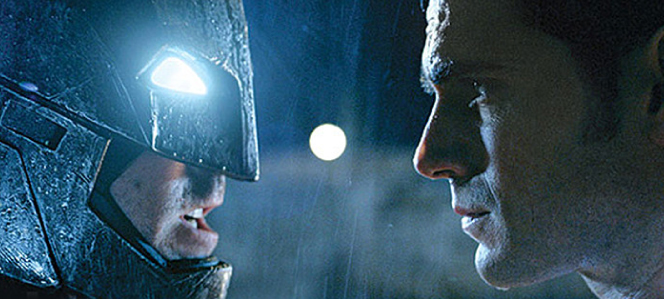I recently saw Batman vs. Superman: Dawn of Justice. Despite the critics’ negative reviews, it is good. It has its problems. Nevertheless, it effectively blended comic book superhero action with a thoughtful modern perspective on religion. Many have lamented the seriousness of the film, preferring Marvel’s light-hearted fantasy world. However, the film’s operatic seriousness is fitting given the importance of its many themes – and, yes, even comic books cover serious topics. But, in my view, the movie primarily deals with theological voluntarism and man’s necessarily suspicious relation to such an arbitrarily omnipotent God. Since theological voluntarism contributed to the “libertarian” model of freedom within modernity, modernity logically tends towards hostility to “God” because based on its non-participatory metaphysics there is no true ontological communio, only violence. This vision is worth pondering because most of us tacitly accept it, thereby creating problems for the spiritual life. In this regard, Batman v. Superman effectively explores the spiritual condition of modern man.
According to theological voluntarism, God’s freedom is spontaneous and without constraints. Nothing can limit his will, not even the Good. Power is defined, in this case, as absolute potentiality - I can do whatever I want – as opposed to actuality. Notice that all the focus is placed on the spontaneity of the will (choice) and not the goodness or badness of that which is chosen. The good is what is voluntarily chosen. It follows that if God decrees killing babies good then it is good because it is according to the divine supreme will. All law bases its normative standing according to the supreme ruling power, the ultimate chooser. Such a view seems to be representative of the Biblical God since, unlike the Greek gods who were not the source of the law and were bound to a law higher than themselves, the Biblical God issues commandments and decrees. His omnipotence seems to lie in the ability to command as opposed to being commanded. Nothing can constrain the possibilities of choice. But while some of this has been said by theologians in the Christian tradition, it misunderstands the nature of God and his will. For the most part, Batman vs. Superman portrays the God-like character of Superman in this way, thereby making us sympathize with the Nietzschean madman (Lex Luthor) and technologist Batman’s desire to kill such a god. God must be eliminated since God and man cannot simultaneously be glorified in Metropolis and Gotham. If God wins, man doesn’t. God and man are in a zero-sum game, and man must fight to the last.
God vs. Man, echoed in Batman vs. Superman, is the default picture of God and our relation to such a divinity for many people. However, it is not the Christian one, at least the Christian thought not influenced by late medieval voluntarism. On the basis of analogy, Christianity situates freedom in terms of the unity of the Transcendentals – Beauty, the Good, and the True. In these terms, freedom is relative to the good, and it is only good insofar as it is true and beautiful. In other words, freedom is free so long as it is based in the real. Actuality has priority over possibility. In most of classical philosophy, potentiality is seen as an imperfection. According to the classical view, God’s freedom is not potentiality but actuality, something that cannot be chosen otherwise. Choice is not good in itself but depends on the goodness of the chosen object. God cannot choose evil because evil is not actual and it does not have the last word. According to such a framework, God cannot choose the nonactual. This does not go against omnipotence in any way because the will is only itself when choosing that which is. This is why sin is not freedom but slavery. And since God cannot choose death and destruction we do not have to fear he is in fundamental competition with us. Batman and Lex Luthor, on the other hand, are right not to fully trust Superman. Superman is not the Christian God, but the God of our projections, an idol, that must be torn down. This is why it might be helpful to watch Batman v. Superman with Feuerbach on hand.
Lex Luthor and Batman say enough throughout the movie to make apparent that they see the necessary threat of the competitive god. This is why Lex is full of resentment and fury that he is not God, and Batman wants to eliminate such a god at all costs. Thankfully, we are not in the same predicament. However, we are in this predicament so long as we have inherited theological voluntarism. Batman vs. Superman is a myth we must tell ourselves to justify our lack of trust in God. Theological voluntarism is not simply a late medieval debate or something depicted in a silly comic book film, but it is a debate that matters to us today and it is worth thinking about. Ideas have consequences. As Batman vs. Superman shows, one’s doctrine of God can ruin the spiritual life.
